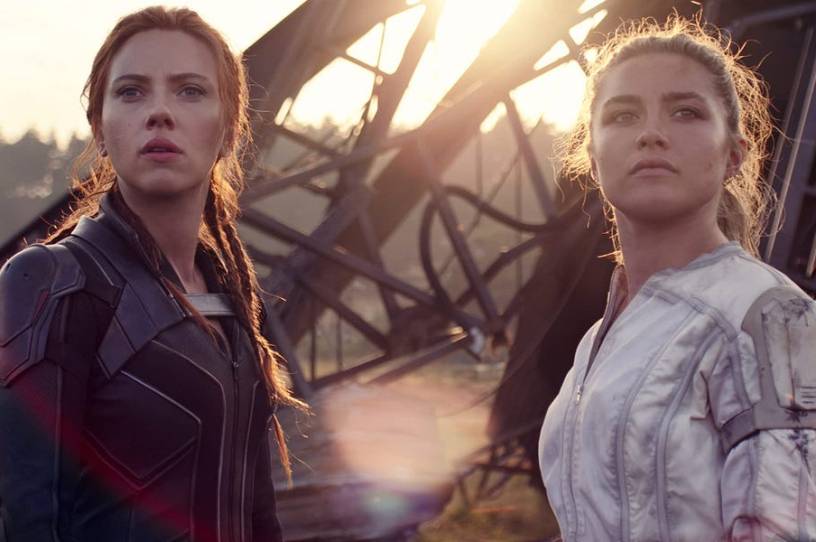‘Black Widow’ Is a Regression for the MCU—Figuratively and Literally

The post-Endgame MCU landscape has been all about exploration, with the studio that’s become famous for their uniformity of quality and style attempting to find a way to keep viewers interested by breaking from that very style. It’s worked to varying degrees: WandaVision started strong before faltering, Falcon and the Winter Soldier failed miserably, and Loki has been interesting and (fingers crossed) might remain so. As such, it’s a bit odd to see Black Widow, the latest entry in the Marvel Cinematic Universe, revert to the same old Marvel style. It’s fine; with a mix of laughs, touching moments, and action. But it’s already been done, and now that we’ve seen Marvel toy with its format, it feels less like a continuation and more like a regression.
The movie is also a regression in an even more literal sense: taking us back in time to a pre-Avengers: Infinity War MCU, in which the Avengers are split and the titular Black Widow, aka Natasha Romanoff (Scarlett Johansson), is on the run after getting on the wrong side of the world’s governments during the events of Captain America: Civil War. She finds a mysterious package of vials sent to her by her adopted sister Yelena Belova (Florence Pugh), and discovers that the Soviet “Black Widow” program that kidnapped her as a child and turned her into an assassin was not destroyed but has gone even deeper underground. Romanoff and Belova team up with former Black Widow Melina Vostokoff (Rachel Weisz) and the USSR’s Captain America, Red Guardian Alexei Shostakov (David Harbor), who had posed as their parents during an undercover mission in the 1980s, to take down the Black Widow program.
To Marvel’s credit: Big budgets get you great actors and actresses. The cast is phenomenal. The actors are wonderful individually and have great chemistry together, bringing to life an odd little dysfunctional family; Johansson and Pugh form the emotional heart of the film as comically bickering estranged sisters who reconnect.
But it’s all the same. Natasha and Yelena bicker and crack jokes like Tony Stark and Captain America, Gamora and Nebula, and almost every other Marvel property to precede them.
These comic retreads weaken an already thin plot. First the crew has to break Shostakov out of prison in a convenient action sequence to save the plot from not having too long go by without on-screen spectacle. Then they infiltrate the villain’s sky fortress with Mission Impossible-style face masks, only for it to be announced that Natasha can’t attack the bad guy because he has a pheromone lock in all the Black Widows—they literally can’t attack him if they can smell him. Sound dumb? It is. Why doesn’t she cover her nose in some way? Because intentionally breaking it looks cooler. These plot contrivances are patently silly, designed not with any sort of logic in mind but just because it will play better with the audience. The most egregious example may be a scene in which internationally famous fugitive Romanoff and Belova openly discuss Natasha being a member of the Avengers and the fact that they’re both trained killers in front of a store owner. It’s good banter—poking particular fun at Natasha’s “hero poses”—but makes no sense coming from two people trained in spycraft who are trying to stay hidden.
If you like Marvel movies, you’ll like Black Widow. Because it’s exactly the same as everything else you like about the series. But if you’re tired of the MCU doing the same old, same old: Watch Loki—it’s the better Marvel property out now—and hope that Black Widow is only a temporary setback in Marvel’s apparent creative progression.